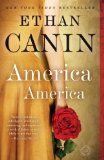Reading Guide Questions

Please be aware that this discussion guide will contain spoilers!
- This novel makes many assertions about the American political landscape
in the early 1970s. What are some of those assertions? In what ways have
American politics changed since then? And how does Henry Bonwiller compare
to today's politicians, in terms of his political demeanor and beliefs as
well as in his sense of both personal and public morality?
- Structurally, the novel is braided from several strands – the
political story, the personal story, the story about economic class and
social station, and the story of the town itself. Which of these stories, in
your opinion, provides the novel's bulwark? How does each contribute to the
novel's themes?
- Corey has two father figures in the novel, his own father and Liam
Metarey. Despite the differences in their social and economic stations, the
men are similar in several ways. How? How do the two of them influence the
man that Corey becomes?
- Very early in the novel, an elderly man hobbles to the grave of Senator
Henry Bonwiller, where he breaks down and weeps. Corey says he recognizes
the man but never reveals a name. Why not? Who is this man? Why is it
important to Corey that he is weeping? Why are we left to discover for
ourselves the man's identity?
- Trieste Millbury, the intern at The Speaker-Sentinel, clearly
reminds Corey of himself. What role does she play in Corey's retelling of
his past with the Metarey family? Why does he tell her his story?
- At one point in the novel, Corey says: "It struck me again, the way it
had just begun to do in those days, how diligently privilege had to work to
remain oblivious to its cost." Then he adds, "I'm speaking of myself now,
too, of course." What are the costs, both to himself and others, of the
privileges that have been bestowed upon Corey? Has he in fact worked to
remain oblivious to these costs?
- Newspapers play an important role in Corey's life–in their pages, he
first learns about politics, and during the Bonwiller campaign he becomes
obsessed by journalism and journalists; he interacts with reporters like
Glenn Burrant and G. V. Trawbridge in significant ways; and, of course, in
the end he becomes a newsman himself. In what ways has news reporting
changed during the span of this novel–from the time of Eoghan Metarey's
rise, through Corey's childhood, up until the present day? In what ways has
it remained consistent? What effects have these changes and these
consistencies had on our democracy?
- In a key scene near the conclusion of the book, Liam Metarey makes a
gruesome discovery, then a fateful decision, while driving his tractor
through an apple orchard in a blizzard. Why, after making this discovery,
does he make this decision? The scene is a pivotal one, yet Corey is not in
fact present when it takes place. Since nobody has explicitly told him what
happened, Corey's depiction of the events seems to come largely, or perhaps
entirely, from his imagination. What evidence does Corey have for what he
deduces? Has Liam Metarey attempted to communicate to him what has occurred?
If so, when? And what else might he have been trying to explain to Corey?
- In many ways, the interactions of important characters drive the
circumstances that result in Liam Metarey's death. Do you think the
principal catalyst for his actions and death was JoEllen Charney? Henry
Bonwiller? Andrew Metarey? Or was it something deeper in Liam's character?
- Corey's description of the relationship between the town of Saline and
the Metarey family is one of mutual trust and dependence. How does this
relationship change over time, especially with respect to the influence of
larger social forces like unionization and the rise of giant corporations?
How does the opinion each party has of the other change over time?
- Though Corey mentions his wife numerous times early in the text, the
reader does not learn who he has married until much later. What is the
purpose of delaying this information? And why, when Corey finally reveals
his wife's identity, does he do it with so little fanfare? What is the
significance of the information Corey shares with the reader and the
information he omits, not only in regard to Clara but to other plot elements
as well? Is it fair for Corey to withhold vital parts of his story? Does he
leave clues about them nonetheless?
- More than once in the novel, the narrator mentions a quotation from
Francis Bacon: "If a man shall begin in certainties, he shall end in
doubts." How is this idea reflected in the lives of Liam Metarey, Eoghan
Metarey, Granger Sifter, Henry Bonwiller, and Corey? Bacon was no doubt
referring to the advent of the scientific method during the seventeenth
century, but how might his words apply to our current culture?
- Throughout the novel, Corey remembers and retells past events without
adhering to chronological order. How does the lack of a linear chronology
influence the reader's experience? Is there a logic to the manner in which
he recalls the scenes? Why does he tell the story like this?
Unless otherwise stated, this discussion guide is reprinted with the permission of Random House.
Any page references refer to a USA edition of the book, usually the trade paperback version, and may vary in other editions.

 Book Reviewed by:
Book Reviewed by:





